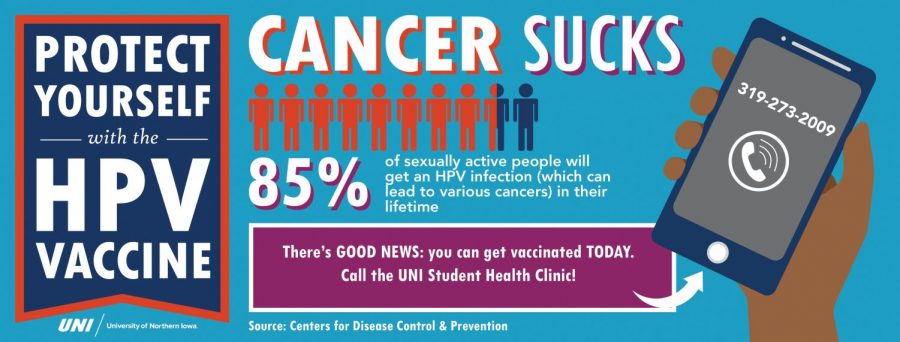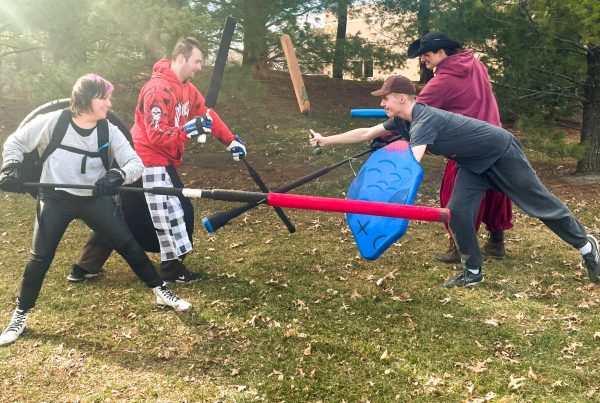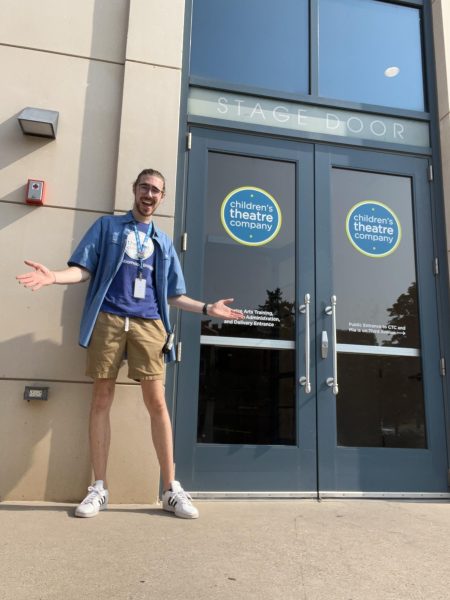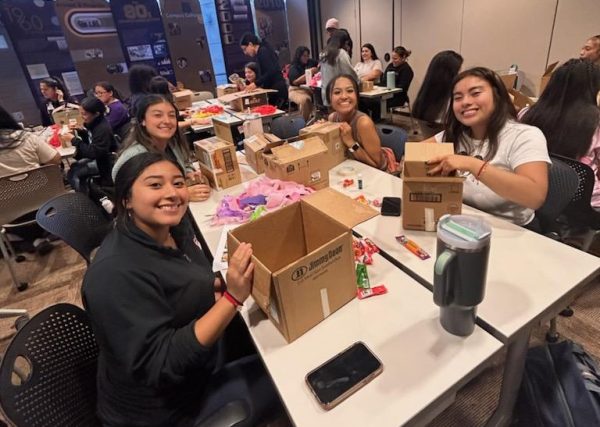HPV vaccines available at Student Health Clinic
UNI Student Wellness Services provides information on HPV, its symptoms and the available of vaccines on UNI’s campus.
Mar 1, 2021
Human papillomavirus (HPV) is a sexually transmitted infection that is not spread by bodily fluids, but simply skin to skin contact. Condoms can reduce the risk of transmission, but it doesn’t completely eliminate this risk. Most people with the infection will not have any symptoms. According to the Centers for Disease Control and Prevention (CDC), HPV is so common that nearly all sexually active people will get the virus at some point in their lives.
HPV can also lead to cancer. The CDC states that every year in the United States nearly 35,000 people are impacted by cancers caused by HPV. Many people think of HPV as a women’s health issue, as it is well known to cause cervical cancer. However, HPV does not discriminate and can affect all genders. HPV can also lead to penile cancer, mouth and throat cancer, anal cancer and other health problems. The treatments for some of these cancers can be devastating to the person and their family. Besides a pap smear, which tests for cervical cancer, there is not an effective way to screen for the other cancers. While this can be scary to think about, there is hope. The HPV vaccination, Gardasil 9, is an effective safe, and long-lasting way to prevent HPV and cancers caused by the virus!
The CDC states that over 90% of these types of cancers can be prevented with Gardasil 9. In addition, Gardasil 9 protects against the most common types of HPV that can cause genital warts. For those who are receiving the vaccine after the age of 15, it is a series of 3 shots over a 6-month period. The vaccine is most effective if given prior to sexual intercourse, but most people don’t know that they have extended the age to receive the vaccine through 45 years old.
Unsure if you have received the vaccine? There are a few ways to find out if you have been vaccinated:
● Call your health care provider back at home and ask them if you received the vaccine as a child.
● Call the UNI Student Health Clinic, which may have access to those records if they have been sent to the clinic or have been placed into Iowa’s Immunization Registry Information System.
● Send a message via the Patient Portal, found on the UNI Student Health Clinic website (health.uni.edu), asking if we have a record of this vaccination being completed.
Preventing cancer is so much easier than treating it! Are you ready to receive the Gardasil 9 Vaccine? You may want to check with your insurance on where they want you to receive the vaccination. Some insurance policies require you to receive these with a designated provider. To check this, call the 1-800 number on the back of your insurance card and ask them if the vaccine would be covered and where they will allow you to receive it.
If you are allowed to receive the vaccine at the UNI Student Health Clinic, call 319-273-2009 to schedule your appointment. Already vaccinated? It is still important to practice safer sex as the vaccine does not protect against all HPV types or other sexually transmitted infections. Visit the Student Health Clinic for free safer sex supplies (i.e. condoms, dental dams, lube) – remember, HPV can be spread through skin-to-skin contact, so any form of sex carries the risk of transmitting HPV. Get smart about HPV – receive the Gardasil 9 Vaccine today!
For more information regarding the HPV vaccine, visit: www.cdc.gov/hpv/.


















